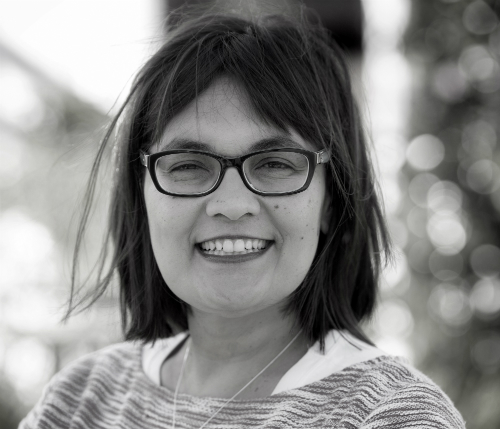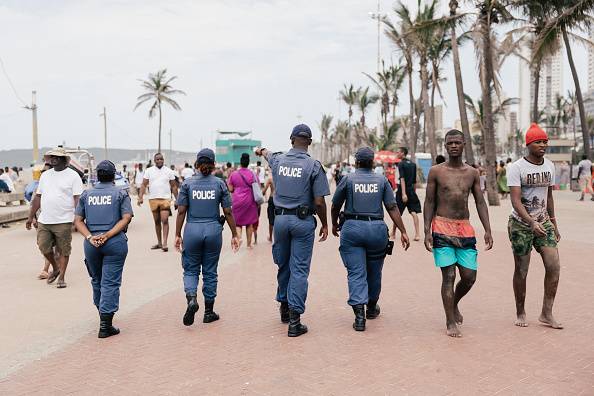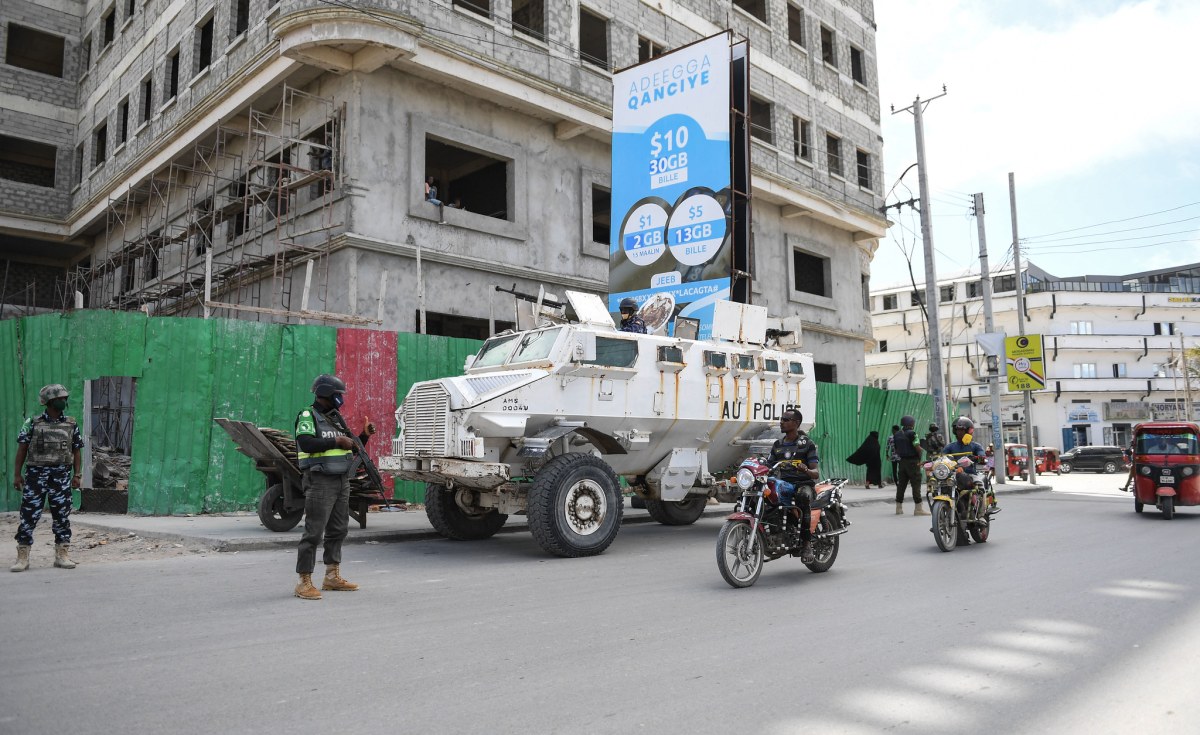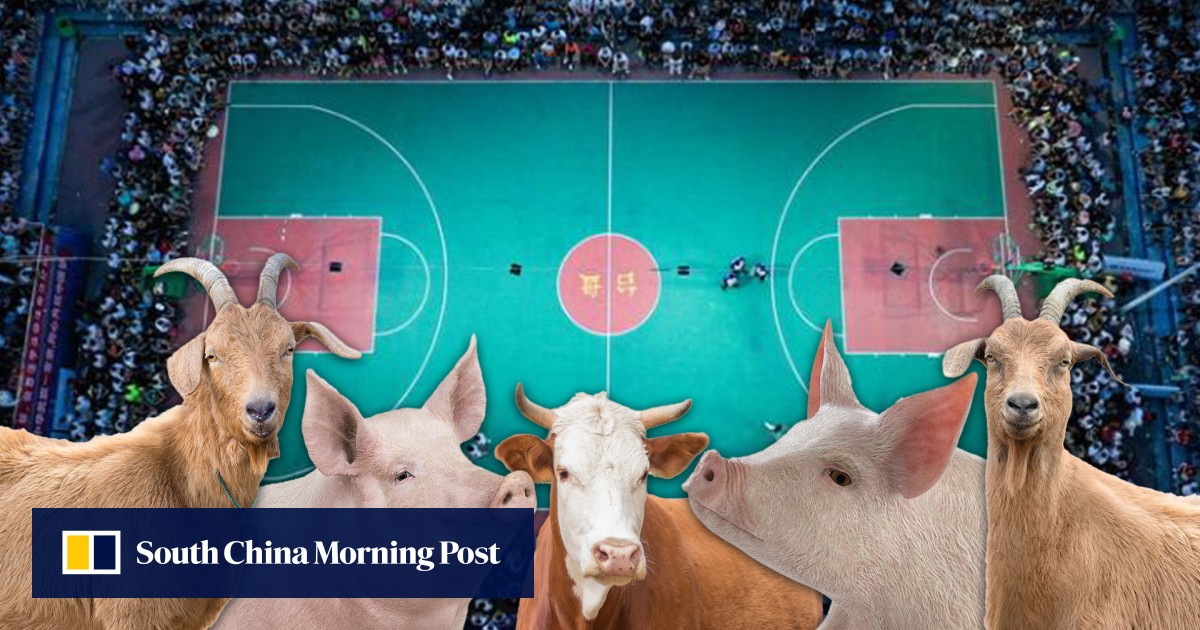It has been 28 years since 1994 and the promise of our first democratic elections. What has happened in the intervening years has been hopeful, deeply disappointing, tragic even and then also joyful. We have run the gamut of emotions in this country which “is held bleeding between us” as Antjie Krog says in her poem, Country of Grief and Grace.
This past week we watched as violence and mayhem broke out in Kagiso after eight women were gang raped, allegedly by zama zamas (illegal mineworkers). In Tembisa, violent protests broke out after electricity cut-offs.
The outrage is fleeting, often marred by violence but leaving deep scars in a country in which violence is part of the language we speak. A pall of grief and anger hangs over us all for the victims of femicide and random blood-curdling violence and at our government, unable to confront its own ineptitude.
Gauteng Premier David Makhura has called out illegal mine workers as being at the heart of the problems in Kagiso. He urged the national government to provide greater assistance while Minister of Police Bheki Cele arrived on the scene, all bluster and with no proper response to offer. A court jester parading as a Cabinet minister who cares. The community was direct when it said, “the Kagiso police station is failing us… the police are not fit to deal with crime in this area.”
In one part of Cele’s haphazard response he said, “I can’t imagine a beautiful woman with a zama zama.”
This casual sexism and xenophobia is now representative of President Cyril Ramaphosa’s government.
As the ANC’s policy conference showed, the party holds no solution to any problem we face, they come only to fan the flames of unrest with xenophobic talk or to appease a restless populace. Shamelessly the ANC engages in “dog whistle” politics or even more crudely, xenophobia in plain sight.
ANC spokesperson Pule Mabe has openly said, “(we have) declared open season on all illegal foreign nationals” residing in SA. He added ominously, “we can no longer guarantee their safety”. He said this while leading a march in which he was accompanied by Head of Organising (sic) for the ANC, “Mama Action” herself, Nomvula Mokonyane. Mokonyane was implicated at the Zondo Commission and Chief Justice Raymond Zondo recommended that she be investigated and prosecuted for corruption. Mabe himself was once accused of sexual harassment.
There is no attempt to engage in a holistic response to the challenge of illegal mine workers or to ask how we got to this point in the first place and how it all fits into the tragedy of South Africa’s high crime rate, fuelled by an absent and mostly corrupt police force.
As Julian Rademeyer writes in Daily Maverick, when police swooped into Mogale city, “it was a show of force for the cameras, but one that in isolation will have little long-term benefit for a community strangled by organised crime”.
Rademeyer continues, “the roots of this underworld economy run far deeper than the abandoned mine shafts and tunnels that dot the landscape. It has festered for well over a decade in the void left by a largely absent police service, unable or unwilling to fulfil their constitutional mandate, riven with corruption, lacking any real strategy, capacity, or skills to investigate complex organised crime and terrified of the very criminals they are meant to apprehend.
“And the zama zamas are at the very bottom rungs of a thriving illicit economy centred on Johannesburg that primarily benefits South African scrap metal and gold dealers, jewellers, gold refineries and exporters.”
The ANC has become a near parody, marching against itself. But Mabe said the quiet part out loud (and he is not alone within the ANC). Leadership matters at moments like these as angry residents burn homes down and go on the rampage without fear of the consequences. But there is little leadership to be found at this time as the ANC cannibalises itself and our president, now the subject of a Parliamentary impeachment process, is unable to lead with any conviction.
Visit Daily Maverick’s home page for more news, analysis and investigations
We should not be surprised. Given its abject failure this government has identified foreigners as the convenient scapegoats — be they zama zamas or Zimbabweans seeking to renew permits. The position seems to be that we need to smoke foreigners out of their holes and send “them” back to where “they” came from. It is horribly reminiscent of former US President Donald Trump’s comment on Mexicans: “They’re bringing drugs. They’re bringing crime. They’re rapists. And some, I assume, are good people.”
It didn’t take long for that to resonate with the left out and left behind in the United States. South Africa is no different and it’s not only the ANC peddling in xenophobic rhetoric in the fertile soil of impoverished communities.
When we read of Operation Dudula or of Gayton McKenzie’s populist rhetoric and when our government responds with proposed policy requiring quotas in the workplace without much thoughtful discussion, then we know that we are entering the territory of simplistic thinking. In a sense, the genius of populism is its appeal to simple binaries as opposed to the often inconvenient slow work of complexity.
As with everything else in South Africa, the reasons for violence are complex. Sometimes it has been driven by xenophobia, at other times a rather more confusing cocktail of anger, frustration and intolerance bubbling at the surface of our society, fuelled by exclusion, poverty and rampant unemployment.
We seem to be straining at the seams as the repercussions of deep inequalities, our inability to bring about structural economic transformation after 1994, and the old baggage of the apartheid years come to haunt us.
South Africa remains one of the most unequal countries in the world, our unemployment rate is at a staggering 34.5% and millions go to bed hungry every night. We are coming out of nearly a decade of State Capture, facilitated by an ANC which has lost its ethical moorings, and the Zuma years which brought only fiscal disaster and a deep sense of hopelessness.
The environment is ripe for blaming “the other” while competing for scarce resources.
Margaret Atwood, in comments made after receiving the sixth annual Hitchens Prize (in honour of the late Christopher Hitchens), put it plainly when she described the challenges to “open democracy” the world faces right now. She argues for reason and against illogic in public life and our interactions with one another. The blame-and-shame game happens when we set aside reason and the ability to unravel complexity. Instead, we resort to name-calling, putting people in silos — “them” vs “us” and asserting easy answers to complex problems.
Someone must be blamed, whether or not the evidence/facts support the argument. It is a timely contextualisation.
So in the midst of this sorrow, we understand what Springbok rugby captain Siya Kolisi means when he says (after virtually every match), “with everything that is going on in our country…” Because there is a lot going on — much sorrow, compounded suffering and grieving, endless disregard for life and community. And yet, also so much that is intrinsically good and worthwhile — even joyful. Balancing it all seems to be in the South African DNA.
On Saturday as Judith Sephuma belted out our anthem in front of a crowd of 42,000 people at Mbombela Stadium, we understood that we are all the violence and sorrow of the week that was but we are also the Afrikaner oom doffing his cap during the singing of the anthem, the young boys in their Springbok regalia who dream dreams, whose heroes range from Pieter-Steph Du Toit to Makazole Mapimpi and the men and women of every shade draped in the colours of the flag.
We are also the gutsy young Kurt-Lee Arendse, Lukhanyo Am’s genius, Faf De Klerk’s toughness, Handré Pollard’s class (when he’s kicking 100% at goal, that is) and the tough-as-nails front row with Malcolm Marx in the middle. And many times we are on the same highs as Willie le Roux racing into the crowd after his opportunistic try. Never give up, never say die.
If a country lives by its myths, then the myth of post-apartheid South Africa must be that it had become “the rainbow nation”, a persuasive image of different people living together in one country, despite the legacy of apartheid that legally shunned such community.
At a popular level, Nelson Mandela often appeared as the architect of nation-building post-1994. This “rainbow myth” or “Madiba magic” had not only become a talisman, but had also become part of the dominant political discourse. Critics on the (black) left felt the ANC-led government had unfairly prioritised the “fears” and interests of the privileged, white community. In effect, the rainbow had unintentionally become a means to gloss over the vast economic inequalities in favour of an opportunistic unity.
It can, however, be argued that the “rainbow myth” was a necessary ingredient for change to be effected. Without it, the transition to democracy would have been a bloody one, resulting in civil war and conflict as we have seen in, for instance, the Democratic Republic of Congo. The government was also keen to avoid the post-independence white exodus experienced in neighbouring Zimbabwe (1980) and Mozambique (1975).
The “rainbow myth” has, however, slowly but surely dissipated as the cleavages of race and class often find us adrift. And of course, the deep levels of corruption have aided our alienation one from the other. That the state coffers are bare has made any attempts at social justice even more fraught.
So when Kolisi says, “with everything that is going on in our country…”, he speaks directly to all that ails us. It may be “only” sport, but this Springbok team is so reflective of who we are at our very best.
But so is Banyana Banyana and the reception these women received when they arrived home. Add to that Cape Town’s own Benni McCarthy who has just been signed as a Manchester United coach and all those representing us at the Commonwealth Games, often against the odds and with very little support from government or Sascoc (though its officials were in Birmingham soaking up the atmosphere) and wonderfully surprising Ashleigh Buhai who won the Women’s Open at Muirfield this weekend. Dare we forget our masterful Rugby Sevens team, diverse, fast and held together like glue by outgoing coach Neil Powell?
And so as our anthem shakes the stadium on Saturday (and it will), all the sorrows of living in this broken country will linger.
Another Women’s Day would have come and gone with the usual government platitudes when we know this is no country for women and girls to be safe and when we know that tomorrow will continue as before unless, as Margaret Atwood challenges us, “we (must) roll up our proverbial sleeves, grab our arrows of desire, sharpen the paring knives of our wits, dedicate our swords to the pursuit of truth, strengthen our resolve, resist the serpents of false argument, hop into our chariots of fire.” DM





















Discussion about this post